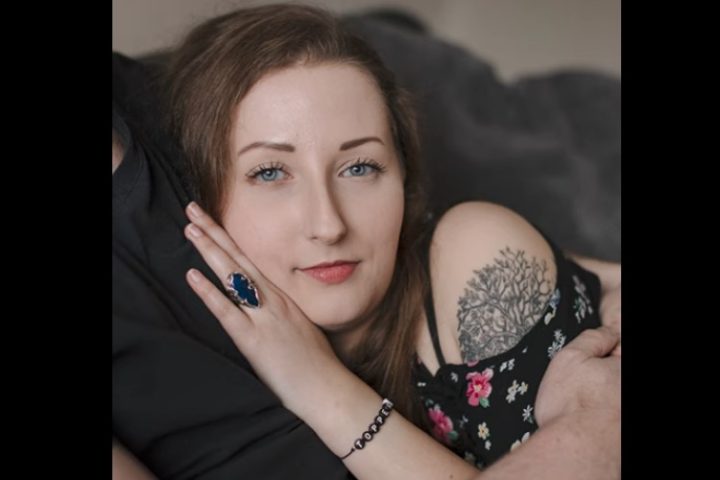
A 28-year-old Dutch woman is scheduled to be euthanized — or, in her words, “freed from life” — in early May because she is depressed.
“When she’s dead, a euthanasia review committee will evaluate her death to ensure the doctor adhered to ‘due care criteria,’ and the Dutch government will (almost certainly) declare that the life of Zoraya ter Beek was lawfully ended,” wrote the Free Press’ Rupa Subramanya, who interviewed ter Beek.
The Netherlands legalized euthanasia in 2001; since then, the practice has become increasingly common. According to Amsterdam’s NL Times, 9,068 euthanasia deaths were reported in 2023, a four-percent increase over the previous year. Euthanasia now accounts for about one in twenty deaths in the Netherlands, and its use to end the lives of those with “severe psychological suffering” is skyrocketing.
Ter Beek is among those seeking physician-assisted suicide for such suffering, Subramanya reported:
Ter Beek, who lives in a little Dutch town near the German border, once had ambitions to become a psychiatrist, but she was never able to muster the will to finish school or start a career. She said she was hobbled by her depression and autism and borderline personality disorder. Now she was tired of living — despite, she said, being in love with her boyfriend, a 40-year-old IT programmer, and living in a nice house with their two cats.
She recalled her psychiatrist telling her that they had tried everything, that “there’s nothing more we can do for you. It’s never gonna get any better.”
At that point, she said, she decided to die. “I was always very clear that if it doesn’t get better, I can’t do this anymore.”
Is there really nothing medical science can do for ter Beek? Or has it simply become easier to offer euthanasia to patients than to treat them?
“I’m seeing euthanasia as some sort of acceptable option brought to the table by physicians, by psychiatrists, when previously it was the ultimate last resort,” Stef Groenewoud, a healthcare ethicist at the Netherlands’ Theological University Kampen, told Subramanya. “I see the phenomenon especially in people with psychiatric diseases, and especially young people with psychiatric disorders, where the healthcare professional seems to give up on them more easily than before.”
Ter Beek, too, has given up. She now sports a “tree of life” tattoo on her upper left arm. But “where the tree of life stands for growth and new beginnings,” she told Subramanya, “my tree is the opposite. It is losing its leaves, it is dying. And once the tree died, the bird flew out of it. I don’t see it as my soul leaving, but more as myself being freed from life.”
She plans to exit this world quietly at home.
“The doctor really takes her time,” she explained. “It is not that they walk in and say: lay [sic] down please! Most of the time it is first a cup of coffee to settle the nerves and create a soft atmosphere. Then she asks if I am ready. I will take my place on the couch. She will once again ask if I am sure, and she will start up the procedure and wish me a good journey. Or, in my case, a nice nap, because I hate it if people say, ‘Safe journey.’ I’m not going anywhere.”
“Then,” penned Subramanya, “the doctor will administer a sedative, followed by a drug that will stop ter Beek’s heart.”
And that will be that — or will it?
“I’m a little afraid of dying, because it’s the ultimate unknown,” ter Beek said. “We don’t really know what’s next — or is there nothing? That’s the scary part.”
Had the Dutch not abandoned their historic faith, ter Beek would know precisely what’s next. As evangelist Franklin Graham, asking his X followers to pray for ter Beek, put it: “God tells us in His Holy Word what’s next. Our soul lives forever, either in heaven in the presence of Almighty God, or in hell separated from Him for eternity.”
During the German occupation of the Netherlands, Dutch doctors, spurred by their faith and the admonitions of their church leaders, refused en masse to participate in the Nazis’ euthanasia program even after 100 of them were sent to concentration camps.
Since that time, however, the Netherlands has become one of the most non-Christian countries in Europe. A 2020 survey by Statistics Netherlands found that 55 percent of Dutch adults claimed to be irreligious, only 13 percent attended religious services regularly, and eight percent of Catholics didn’t even believe in God.
Is it any wonder, then, that the Dutch, including their doctors, have embraced the culture of death?
According to the New York Post, “Ter Beek blasted the Free Press article on Twitter … and announced that she would be leaving social media ahead of her death.”
“It was an honor for me to provide insights to people who were open to learning something,” she huffed.
Apparently, she was expecting Subramanya to author an article lauding her “courage” for deciding to kill herself, as so many would, and was upset that such was not the case.
Ter Beek ought to consider what her detractors have to say. Most, such as Subramanya, direct their criticism not at her but at “laws that destigmatize suicide, a social media culture that glamorizes it, and radical right-to-die activists who insist we should be free to kill ourselves whenever our lives are ‘complete.’”
For ter Beek, they have nothing but compassion.
“I wish Zoraya knew how much God loved her — and I pray someone can get to her and tell her that He sent His only Son, Jesus Christ, from heaven to earth so she could have forgiveness of her sins and have a relationship with Him,” wrote Graham. “I wish she could know His peace in her heart and that she could cast her cares upon Him.”



